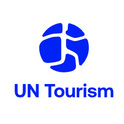Tourism Restarts: 40% Of Destinations Have Now Eased Travel Restrictions
The responsible restart of tourism is underway around the world as growing numbers of destinations ease COVID-19 related travel restrictions and adapt to the new reality. According to the latest analysis from the World Tourism Organization (UNWTO), 40% of all destinations worldwide have now eased the restrictions they placed on international tourism in response to COVID-19.
The United Nations specialized agency for tourism has been monitoring global responses to the pandemic from the start of the crisis. This latest outlook, recorded on 19 July, is up from 22% of destinations that had eased restrictions on travel by 15 June and the 3% previously observed by 15 May. It confirms the trend of a slow but continuous adaptation and responsible restart of international tourism.
At the same time, however, of the 87 destinations that have now eased travel restrictions, just four have completely lifted all restrictions, while 83 have eased them while keeping some measures such as the partial closure of borders in place. This latest edition of the UNWTO Travel Restrictions Report in addition shows that 115 destinations (53% of all destinations worldwide) continue to keep their borders completely closed for tourism.
Responsible restart is possible
UNWTO Secretary-General Zurab Pololikashvili said: "The restart of tourism can be undertaken responsibly and in a way that safeguards public health while also supporting businesses and livelihoods. As destinations continue to ease restrictions on travel, international cooperation is of paramount importance. This way, global tourism can gain people's trust and confidence, essential foundations as we work together to adapt to the new reality we now face."
According to the UNWTO report, destinations with a higher dependency on tourism are more likely to be easing restrictions on travel: Of the 87 destinations that have eased restrictions recently, 20 are Small Island Developing States (SIDS), many of which depend on tourism as a central pillar of employment, economic growth and development. The report also shows that around half (41) of all those destinations that have eased restrictions are in Europe, confirming the leading role of the region for the responsible restart of tourism.
Many destinations still in long-term lockdown
Looking at the 115 destinations that continue to have their borders completely closed to international tourism, the report finds that a majority (88) have been completely closed their borders for international tourism for more than 12 weeks.
The cost related to the travel restrictions introduced in response to COVID-19 has historic dimensions. This week, UNWTO released the data on the impact of the pandemic on tourism, both in terms of lost tourist arrivals and lost revenues. The data shows that by already by the end of May, the pandemic had led to US$320 billion in lost revenues, already three times the cost of the 2009 Global Economic Crisis.
About UN Tourism
The World Tourism Organization (UN Tourism), a United Nations specialised agency, is the leading international organisation with the decisive and central role in promoting the development of responsible, sustainable and universally accessible tourism. It serves as a global forum for tourism policy issues and a practical source of tourism know-how. Its membership includes 166 countries, 6 territories, 2 permanent observers and over 500 Affiliate Members from the private sector.
Media enquires: [email protected]
UN Tourism Communications Department
+34 91 567 8100
UN Tourism
